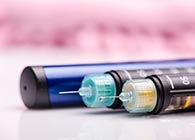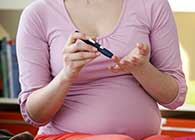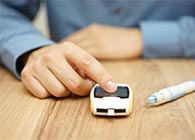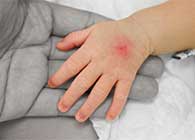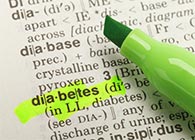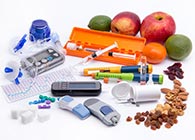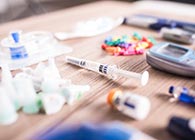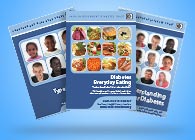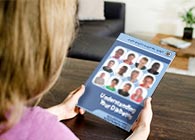Needle Phobia
Looking after your Insulin and Injecting Devices
Storing Insulin
Insulin Pens Dribble
Needle Phobia
Needle Free Injection Device
Needle Phobia
There are many phobias that affect people and there is a small number of adults and children who have needle phobia – a fear of needles. This is a very real problem as it is a great deal more than just ‘not liking injections’ and of course becomes a very important problem if someone with needle phobia develops diabetes that requires insulin treatment.
- Needle phobia may affect treatment and/or diabetic control by adults and children "forgetting" injections, omitting injections and blood tests or refusing to go on to a multi-dose regime because it means even more injections.
- It is important that needle phobia is recognised as a very real problem and that assumptions are not made that the child, teenager or adult is just being ‘non-compliant’ and ‘not doing what they should’.
Is there a connection between needle phobia and injection pain?
Research carried out in Denmark (ref1) used questionnaires to ask 158 children and adolescents with diabetes about injection pain and needle phobia. While the study concluded that most children and adolescents experience only slight pain when injecting for some pain and needle phobia are major problems.
The results were as follows:
Injection pain
- Pain with blood tests was significantly greater than with all types of injection devices.
- Younger children found both injections and blood testing more painful than older children.
- At the age of 14-18 years some still defined injection pain as unbearable.
- Pen users found only slightly lower pain than those using syringes even though they had twice as many injections. But those who had recent experience of both pens and syringes indicated significantly less pain with pens. However, when the research was carried out the fine needles that were available for pens were not available for syringes.
Needle Phobia
8.3% of those between 6 and 19 years classed themselves as having pronounced needle phobia. However this group showed:
- That all family members had a more negative attitude towards diabetes.
- 16.8% of mothers and 17.6% of fathers classed themselves as having pronounced needle phobia.
- 9 of the 13 children with needle phobia had fewer than 5 years experience of diabetes.
Relationship between needle phobia, injection pain and diabetic control as measured by HbA1c levels
The study demonstrated a clear relationship between injection pain and HbA1c levels, those with injection pain had ‘poorer’ HbA1cs. There was also a clear relationship between needle phobia and injection pain, blood testing pain, patients’ attitude towards diabetes and their mood at the time.
Ref 1 Experiences of pain from injections and needle phobia in young patients with IDDM. Practical Diabetes July 1997, Vol 14: No 4
Note: We still know very little about the effects of self-inflicted pain on children, teenagers and adults. It is an area worthy of further research.


